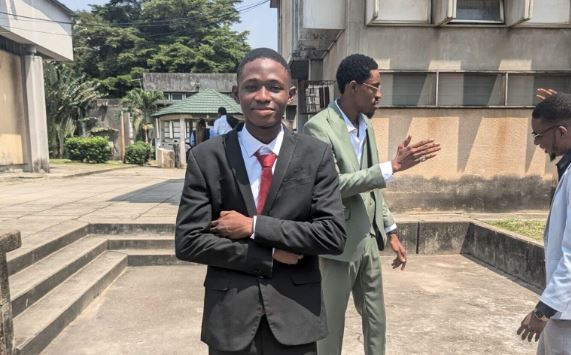A student from the University of Lagos (UNILAG) has created a GPT-2 tokenizer by harnessing data from Nairaland, Nigeria’s largest online forum.
This groundbreaking project showcases the growing innovation within Nigeria’s tech ecosystem, as more students and young professionals venture into artificial intelligence (AI) and machine learning development.
The Student’s Vision
The student, whose identity remains undisclosed, successfully trained a GPT-2 tokenizer by scraping data from Nairaland’s massive forum, which contains millions of user-generated posts and discussions across various topics.
The project is an attempt to build a custom tokenizer — the mechanism used to break down text into understandable chunks for AI models — tailored to the unique linguistic and cultural nuances found in Nigerian online communication.
Nairaland, being one of the most trafficked websites in Nigeria, offers a wealth of data that reflects local language usage, slang, and regional expressions.
By leveraging this unique dataset, the student has created a tool capable of understanding the intricacies of Nigerian English, pidgin, and local dialects, which are often underrepresented in traditional AI models.
What is GPT-2?
GPT-2 (Generative Pre-trained Transformer 2) is an advanced machine learning model developed by OpenAI for natural language processing (NLP). GPT-2 is capable of generating human-like text based on a given prompt and has been widely used for a range of applications, from chatbots to creative writing. However, GPT-2 models often require extensive datasets to fine-tune their accuracy and performance.
Leveraging Nairaland Data
The UNILAG student’s decision to build the tokenizer using Nairaland data is a strategic one. Nairaland hosts a wide variety of conversations on topics such as politics, technology, entertainment, and everyday life, making it an ideal source for training AI models that can understand local language nuances.
The forum’s discussions reflect the dynamic way Nigerians communicate online, often mixing English with Nigerian Pidgin, Yoruba, Igbo, and other local languages.
This diversity makes it an invaluable resource for developing a more context-aware language model.
By creating a custom tokenizer, the student has tailored the GPT-2 model to better understand these local communication patterns, potentially improving the model’s ability to generate more accurate and contextually relevant text when applied to Nigerian-specific scenarios.
A Step Towards Localized AI Development
The project represents a significant milestone in the development of localized AI models within the Nigerian context.
While many international AI models often fail to accurately interpret local dialects, slang, or cultural references, the student’s approach may help fill this gap, making AI more adaptable and relevant to Nigerian users.
The success of this project could open the door for other Nigerian developers and students to create customized AI solutions that cater to local needs, whether in customer service, content generation, or even healthcare.
Community Support and Impact
The project has been well-received within the Nigerian tech community, where the student has garnered praise for using homegrown data to build a cutting-edge AI tool.
Some experts believe that this development could spark a wave of similar projects aimed at improving AI’s understanding of African languages and local contexts.
Tech enthusiasts on platforms like Twitter, GitHub, and other local tech forums have expressed excitement, calling the project a potential game-changer in the field of Natural Language Processing (NLP) for African languages.
The Future of AI in Nigeria
This development underscores the growing importance of AI research and innovation within Nigeria. With the country becoming a hub for technology and entrepreneurship, it is no surprise that students are spearheading projects that push the boundaries of what AI can achieve.
In the coming years, Nigeria could see more developments in machine learning, natural language processing, and AI ethics, as young innovators continue to leverage local data and cultural knowledge to improve global technology systems.
About Nairaland
Nairaland is Nigeria’s largest online community, offering a space for discussions on a wide range of topics, including politics, business, sports, entertainment, and technology. It boasts millions of registered members and is an influential platform for public discourse in Nigeria.
This student’s project highlights the growing talent within Nigeria’s tech ecosystem and its potential to contribute to global AI development, especially in making AI more inclusive and culturally aware.







